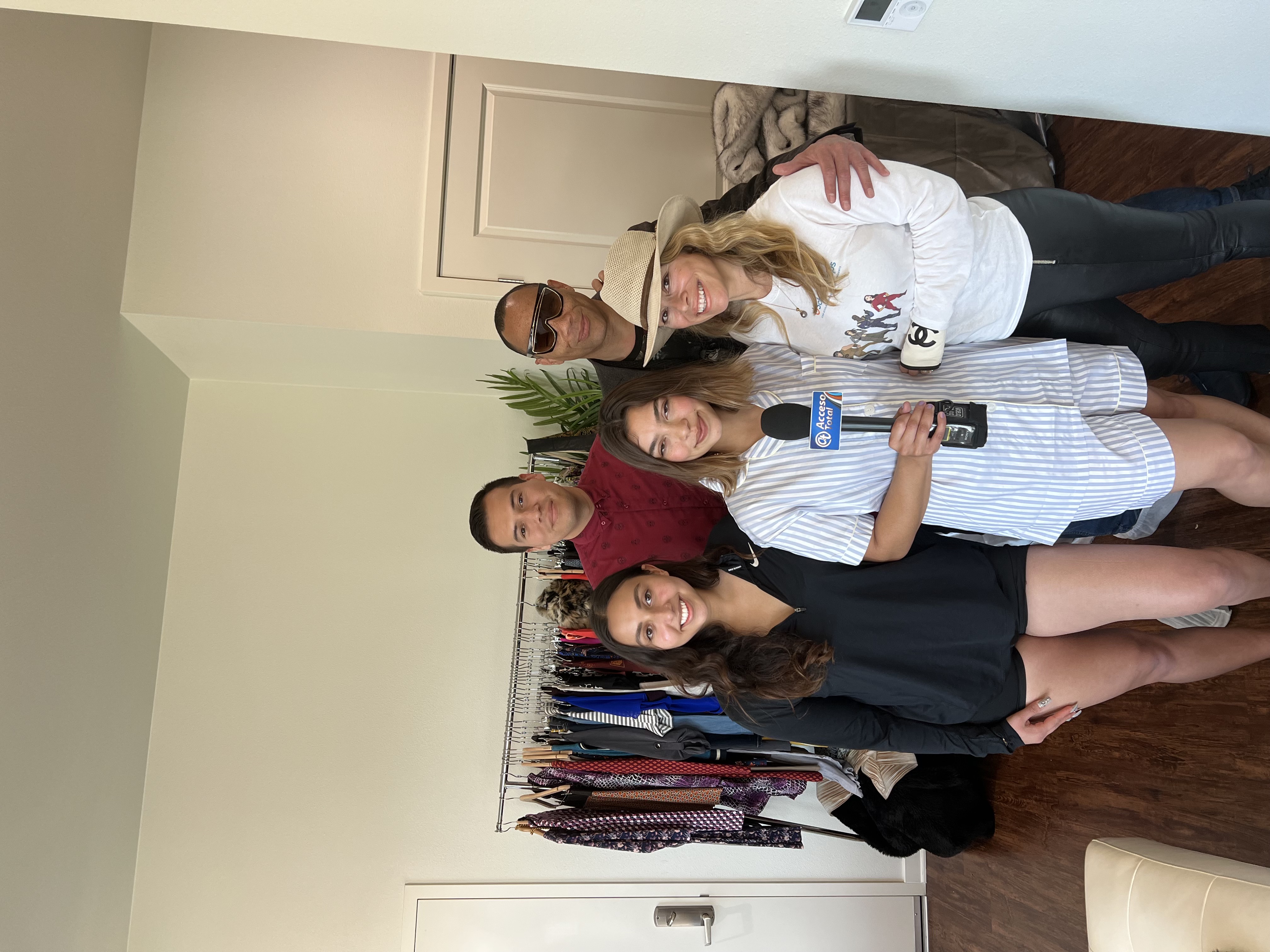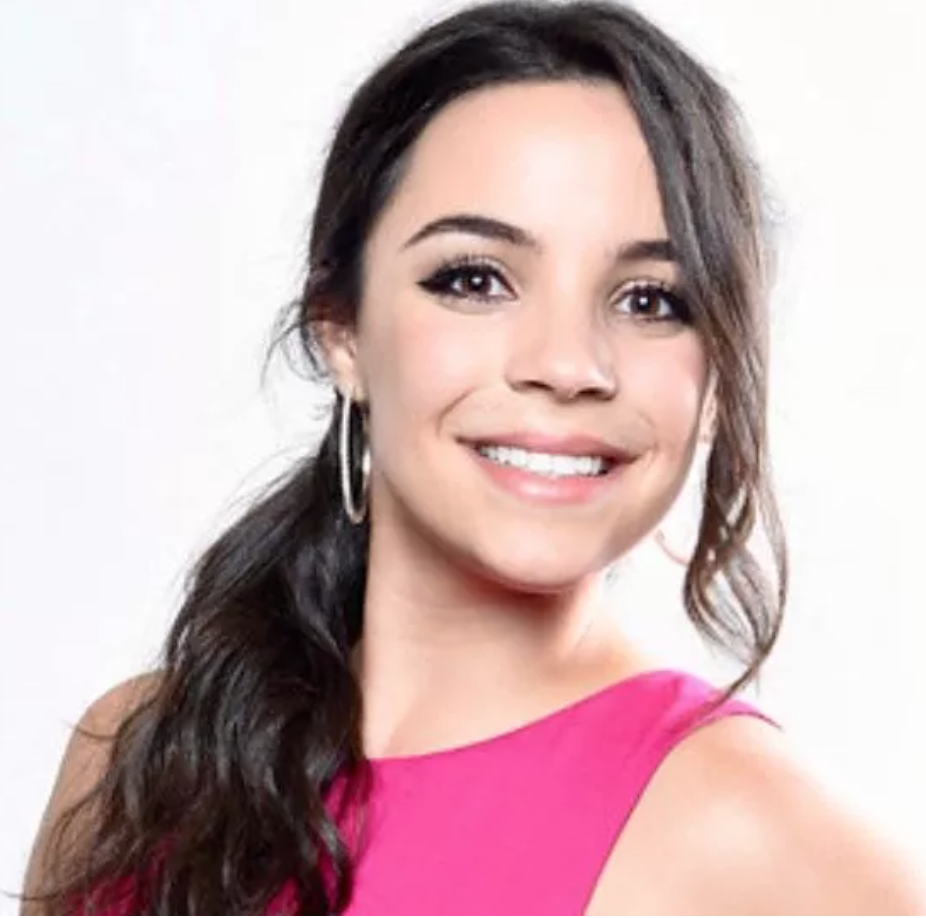IOScholarships aims at addressing Latinos and other minorities’ underrepresentation in STEM fields by assisting them in the process of applying for scholarships, grants and internships.
According to the non-profit IOScholarships (ioscholarships.com), over $100 million in scholarships in STEM areas (Science, Technology, Engineering, and Math) go unclaimed each year, which it aims to change. It also emphasizes that Latinos are underrepresented in STEM fields, composing 19% of the U.S. population and holding only 8% of science and math jobs.
IOScholarships’ underlying goal is to help Latinos and other minorities earn the funding to forge careers in these highly desirable fields.

Launched in 2021, it is spearheaded by founder and CEO Maria Trochimezuk, who was raised in Buenos Aires, Argentina and is of Ukrainian heritage. She came to the U.S. in 2000 to study post-graduate marketing at UC Santa Barbara and then participated in Stanford University’s Latino Enterprise Initiative. She then worked in various corporate jobs at Nissan and Wells Fargo and led the Latino Strategies Group at Hill & Knowlton before launching IOScholarships.
“There is a lack of a talented, qualified and diverse STEM workforce in the whole economy. This is costing the U.S. economy trillions of dollars of lost economic opportunity,” she noted. The non-profit’s role is to provide “scholarships and internships for diverse and under-represented students to be part of the STEM pipeline,” she added.
Why did she, now 48 years old, leave the well-paying corporate life at 45 to start a non-profit? “I wanted to follow my skills and passion by creating opportunities for students of color,” She replies.

Her platform IOScholarships is part of the National Scholarships Provider Association (NSPA) and has assisted about 11,000 students in obtaining STEM scholarships. NSPA helps students who become involved with IO learn more about “applying for scholarship money to aid in their post-secondary education,” Trochimezuk cited.
She asserts that for a Latino student to earn these scholarships and grants, “it takes applying for scholarship as if it was a part-time job.” Hence, she says high-school students must be persistent in applying for these scholarships. Consider, for example, when you’re a senior applying to be part of the Society of Hispanic Professional Engineers, which “provides a community and hub, and help with recommendations but also with guidance.”
While Pell Grants and filling out FAFSA (Free Application for Federal Student Aid) applications help, she noted, students must “create a financial plan to attend college debt-free and that means applying for scholarships, talking to school counselors, and creating an integrated approach.”
The high school students who participate in IOScholarships are overwhelmingly Latino and from other minorities. In fact, 80% of its participants are Latino, 15% African-American and the remainder, other minorities. White students can participate, but the vast majority of scholarships on the site address the needs of minority students.
Trochimezuk is based in Playa del Rey, in Los Angeles, California and started the non-profit with her own funds. Then, she obtained funding through a grant from Google’s Ureeka Powerup Program, which supports Latino-owned businesses. Much of its budget, she said, is “bootstrapped,” meaning she raises funds on her own and taps some of her own money.

IOScholarships aims to help mainly minority students graduate debt-free, while boosting the number of Latinos and other minorities who pursue STEM careers. It runs with two full-time employees and six part-time staffers, which includes engineers who continuously work on improving the platform, scholarship curates, data analysts, and a platform manager.
How can IOScholarships operate with so few staffers and some volunteers and accomplish its goals? Trochimezuk replied, “by relying on technology.”
She cited that students must put in personal information to “better match them to scholarships based on their skills, GPA and financial need”. She described the website as very easy to use, and in less than five minutes, students can see options of which scholarships to apply for.
Its name IO, she pointed out, is the “visual representation of digital I for turning on, and O for turning off, and there’s no space between them because IO serves as the domain name, which doesn’t permit spaces.”
Its website says that what differentiates IOScholarships is that it connects private foundations and corporations that want to provide scholarships to minority students, not just the competitive national scholarship pool. It also covers undergraduates, graduates, and post-graduates, and goes beyond scholarships by providing financial education information, money saving tips, and scholarship organizers.
Though it operates primarily online (which most high schoolers can relate to), its participants and their parents can call a customer service line or send questions via email. Moreover, though STEM issues are its major reason for being, it has been expanding with scholarships in other areas, such as the arts.
It attracts students and markets its services in a variety of ways. “The majority of our efforts are grassroots involving partnering with HSIs (Hispanic Serving Institutions) and HBCUs (Historically Black Colleges and Universities), word of mouth, public relations and social media marketing,” she said.
A Feb. 25, 2002 article in NBC News quoted Alyssa Garbarino, a biology major at California State University Channel Island, who said IOScholarships provided access to many private scholarships she couldn’t access anywhere else, as well as many postgraduate scholarship opportunities.
Why don’t more Latinos apply for these scholarships, grants, and internships and take more advantage of them? She replied, first, “it’s the lack of awareness of where to find these scholarships, and secondly, they think they won’t win these scholarships, so there’s a lack of confidence. That’s why we launched.”
The organization also sponsors a podcast, called its “Super-Hero Podcast,” which explains where to obtain these scholarships. “Our platform is trying to reach the next Elon Musk (who started the automobile company Tesla and now owns Twitter). It involves overcoming barriers, both cultural and ethnic, and being resilient in the economy,” she noted.
Asked what long-term goals she’d like to accomplish, Trochimezuk said that she wanted to “reach a community of over one million students who would contribute $1 billion to the economy.” Her goal is to become “the connector of opportunities for STEM students of color.”